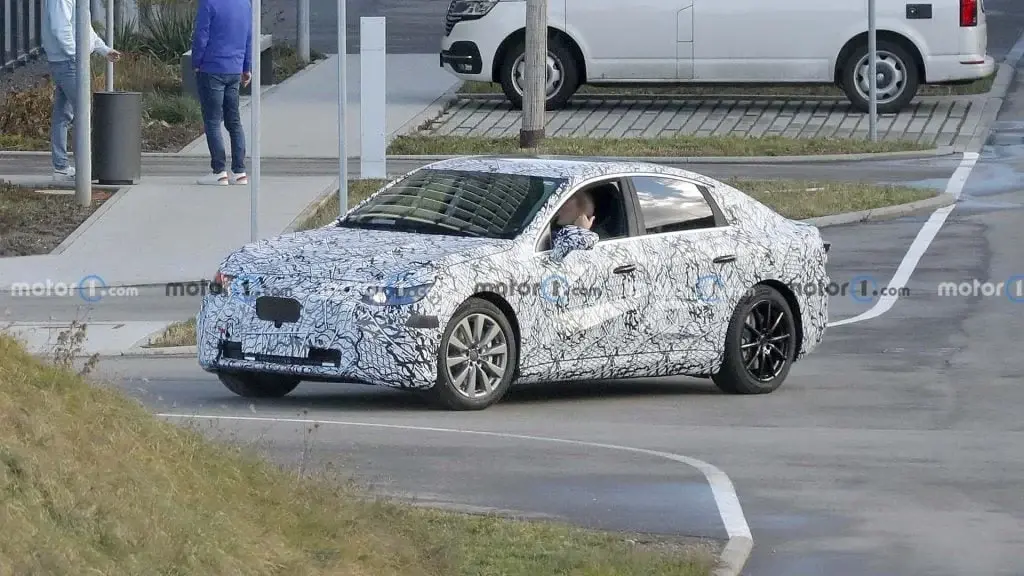The Race in the Electric Vehicle (EV) Market: Mercedes-Benz’s Plans for the Future
Mercedes-Benz is determined not to be left behind in the race for dominance in the electric vehicle (EV) market. The company has set ambitious plans to transition entirely to electric cars by 2030, depending on market growth. One of the key players in this electric dream is the new electric C-Class, which is set to launch in 2025 and will serve as Mercedes’ answer to the BMW i4.
The Mercedes Electric C-Class: A More Refined Design
Recently, the electric C-Class was caught on camera during testing. The vehicle was heavily camouflaged to keep its final design a secret. Despite the disguise, it is evident that Mercedes is aiming for a sleeker and more refined look compared to its larger models like the EQE and EQS. The electric C-Class seems to draw inspiration from the Vision EQXX concept car, particularly in terms of aerodynamics.
Mercedes’ Exclusive Electric Vehicle Platform: MB.EA
The new electric sedan is expected to be built on Mercedes’ exclusive electric vehicle platform known as MB.EA. This platform sets it apart from the electric CLA models, which are being developed on a mixed-use platform (MMA) that also supports traditional combustion engines. Mercedes’ strategy reflects their effort to cater to different tastes and needs within the EV market.
A Possible Change in EV Naming Convention
There is speculation that Mercedes may change the way they name their EVs. Starting in 2024, they might move away from the “EQ” branding, potentially beginning with the electric version of the G-Class. This shift signifies a new era in Mercedes’ EV journey, as they seek to adapt and evolve in the rapidly changing landscape of electric mobility.
Head-to-Head Competition with BMW
As Mercedes prepares to launch the electric C-Class, it is not just about their own evolution. They are also gearing up to compete with BMW’s upcoming electric vehicles, such as the i3 Sedan and the next-gen iX3. These BMW models are expected to be built on the innovative Neue Klasse platform. The competition between these luxury automakers highlights the dynamic and fast-changing nature of the luxury EV market. With its modern design and cutting-edge technology, the Mercedes electric C-Class is ready to make its mark in the rapidly evolving world of electric cars.
Conclusion
Mercedes-Benz is making significant strides in the electric vehicle market with its plans to transition entirely to electric cars by 2030. The upcoming electric C-Class, with its refined design and exclusive electric vehicle platform, showcases Mercedes’ commitment to innovation and meeting the diverse needs of EV consumers. As the competition between Mercedes and BMW intensifies, it is clear that the world of luxury EVs is rapidly evolving, and these automakers are at the forefront of this transformation.


Leave a Reply